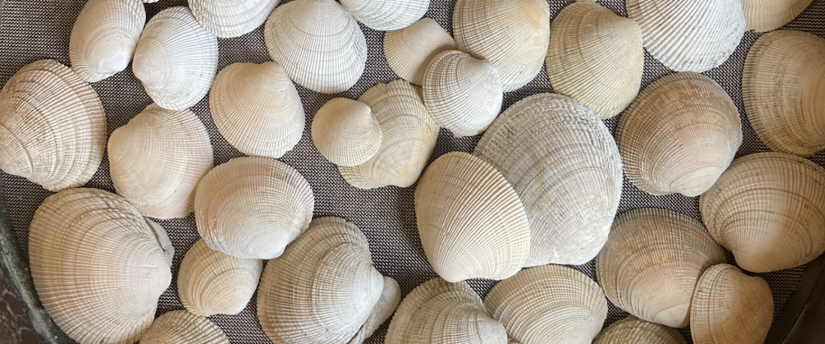
PROJECT HIGHLIGHT
This project documented how the California native Pacific littleneck clam responds to ocean acidification and evaluated the use of Indigenous shellfish management techniques to promote healthy clam populations in Northern California.
PROJECT SUMMARY
Ocean acidification poses a significant threat to marine shellfish, particularly species like the Pacific littleneck clam (Leukoma staminea) that are both ecologically and culturally important to Northern California ecosystems and Native communities. This research project investigated whether traditional Indigenous management practices — specifically adding pulverized shells to sediment — could help protect clam populations from the harmful effects of increasingly acidic ocean waters.
The research team conducted controlled experiments with juvenile Pacific littleneck clams over 90 days, testing four different conditions to understand how shell hash affects clam growth and development under acidic conditions. The study examined multiple aspects of clam health, including shell size and shape changes, genetic responses that control shell formation and the chemical effects of adding crushed shells to the clams' habitat. The researchers also tested whether shell hash could increase the alkalinity of pore waters in field sediments from the Tomales Bay region, potentially buffering against ocean acidification.
The project successfully demonstrated that adding shell hash to sediments effectively increased pH levels and promoted better clam growth even under acidic conditions. Gene expression analysis revealed that clams in acidified water with shell hash were nearly identical to those in normal seawater, suggesting the shell hash treatment successfully mitigated the stress of acidification. This research incorporated traditional practices with empirical data and partnered local academic institutions, Tribal citizens and resource managers to produce findings with practical implications for the conservation and adaptive management of northern-central California intertidal ecosystems.
2022 California Sea Grant Graduate Research Fellowship Webinar Presentation - June 11, 2024